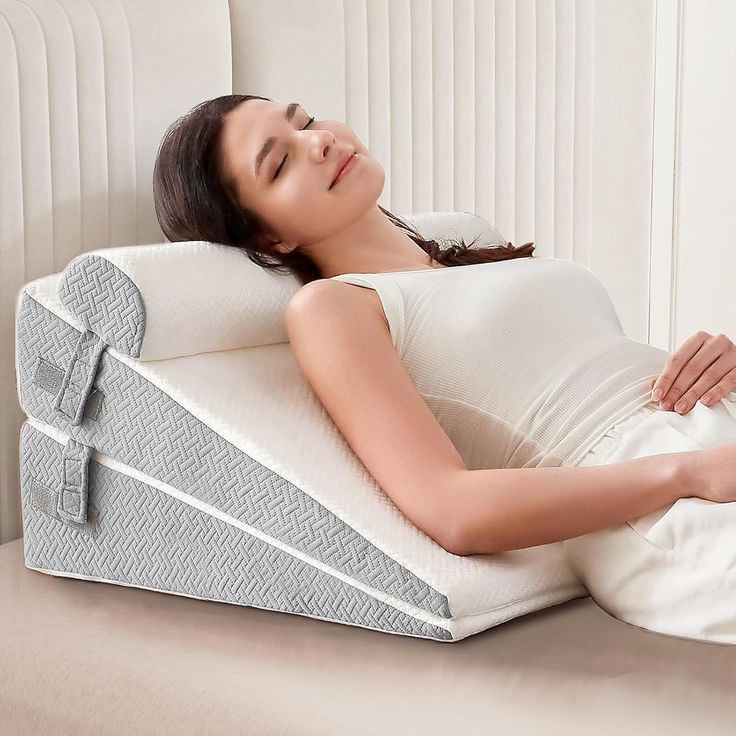A good night’s sleep is crucial for maintaining optimal health and well-being, especially for those dealing with specific medical conditions. Finding the right medical pillow can significantly impact your recovery process, comfort during the night, and overall sleep quality. This comprehensive guide explores the various types of medical pillows available, how they cater to specific health issues, and what to consider when selecting the best one for you.
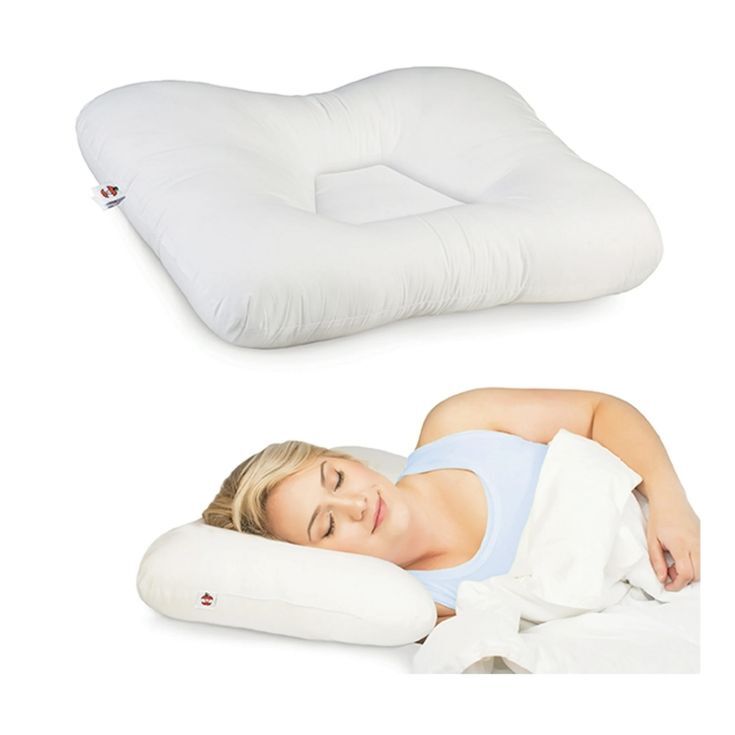
Understanding the Importance of Medical Pillows
Medical pillows are specifically designed to address a range of health conditions that disrupt sleep. They differ significantly from standard pillows, which often provide only basic support. Medical pillows come with unique designs that promote correct alignment of the body. They also relieve pressure on sensitive areas and accommodate various physical needs. This makes them especially beneficial for individuals dealing with conditions such as arthritis, fibromyalgia, sleep apnea, and post-surgery recovery.
Sleep plays a vital role in the healing process. Inadequate sleep can hinder recovery and exacerbate chronic pain. Studies suggest that a lack of restorative sleep may even lead to mood disorders. Therefore, selecting a high-quality medical pillow becomes a crucial component of your recovery plan.
A well-chosen medical pillow can alleviate discomfort significantly. It can support proper body alignment and reduce the risk of developing further complications. For example, a wedge pillow can help alleviate acid reflux, while a cervical pillow can provide essential neck support. Understanding the purpose and design of each type of medical pillow can guide you toward making the best choice for your specific health needs. Your sleep health directly impacts your overall well-being.
Types of Medical Pillows: A Comprehensive Overview
Medical pillows come in a variety of designs, each tailored to specific health issues. This diversity enables individuals to find pillows that suit their unique needs.
Wedge Pillows
Wedge pillows are designed to elevate the head and upper body. They help ease symptoms associated with acid reflux or snoring by promoting better airflow during sleep. By keeping the upper body elevated, these pillows can prevent stomach acid from moving up the esophagus. This makes them particularly useful for those suffering from gastroesophageal reflux disease (GERD). Additionally, wedge pillows benefit individuals recovering from surgery. They can help prevent fluid buildup and reduce pressure on incisions, leading to a more comfortable recovery experience.
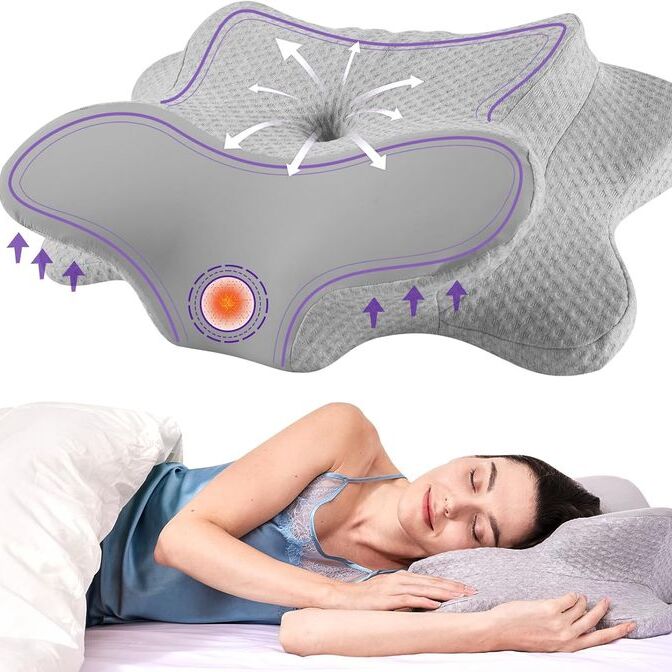
Cervical Pillows
Cervical pillows are specially designed for neck pain relief. These pillows offer contouring support that aligns with the natural curve of the neck. This design promotes spinal alignment and minimizes the risk of experiencing stiffness or discomfort. Many people find that using a cervical pillow reduces morning neck pain and enhances sleep quality. Proper neck support is crucial, especially for individuals who sleep on their backs or sides.
Knee Pillows
Knee pillows are ideal for those experiencing hip or lower back pain. These pillows are typically placed between the knees while sleeping, providing support that helps maintain proper alignment of the pelvis and spine. This positioning reduces strain on the lower back and encourages a more restful night’s sleep. Knee pillows have become increasingly popular among side sleepers who seek relief from discomfort.
Pregnancy Pillows
Pregnancy pillows cater specifically to expectant mothers. They offer full-body support and alleviate pressure on the hips, back, and abdomen during sleep. These versatile pillows adapt as the pregnancy progresses, helping to align the body for a more restful and comfortable sleep. With various shapes and sizes available, selecting the right type of pregnancy pillow can significantly improve sleep quality during this critical time.
Choosing the appropriate medical pillow is essential for addressing your specific needs, whether for chronic pain management, recovery from surgery, or support during pregnancy. Investing in the right pillow not only enhances comfort but also contributes to better overall health and well-being.
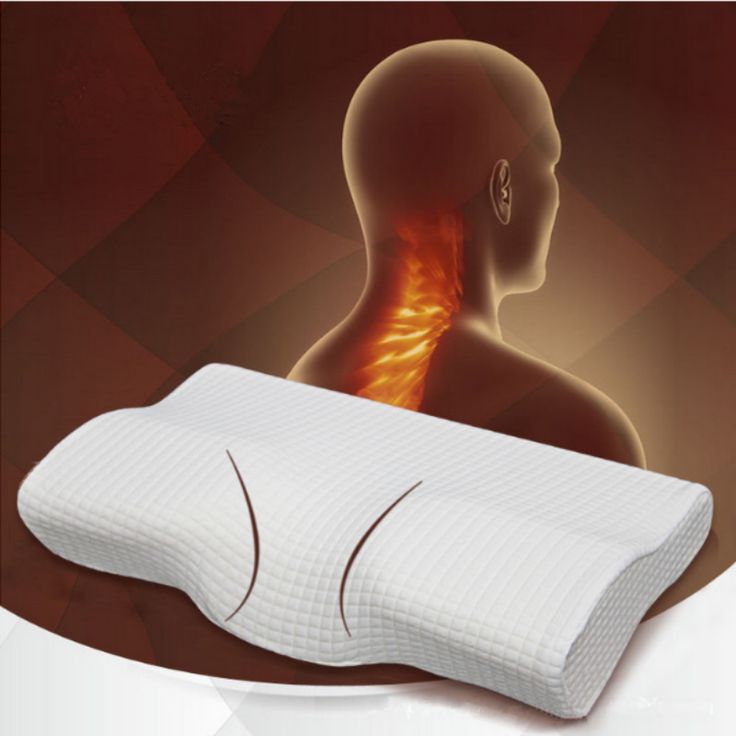
Key Features to Look for in a Support Pillow
When shopping for a medical pillow, several features can enhance your comfort and healing experience. Material, firmness, shape, and size are all critical factors. Memory foam, for example, has gained popularity for its ability to conform to the shape of your body while providing adequate support. It also helps in pressure relief, making it an excellent choice for individuals with chronic pain conditions.
Firmness is another crucial consideration. A pillow that’s too soft might not offer the necessary support, while one that’s too firm can lead to discomfort. Always opt for a medical pillow that provides a medium-firm feel, striking a balance between support and comfort. Additionally, the pillow’s shape plays an integral role. Ergonomically designed pillows, like contoured or wedge shapes, can deliver the targeted support needed for specific ailments.
Lastly, size is significant. A pillow that’s too large or too small may not serve its intended purpose effectively. Make sure you assess your body size and sleep style when choosing a pillow. Evaluating these features not only enhances comfort but also improves the overall effectiveness of the pillow in addressing your condition.
Personalized Suggestions Based on Common Medical Conditions
Each medical condition requires a tailored approach to pillow selection. For individuals suffering from chronic neck or back pain, cervical pillows and contour pillows provide the necessary support to maintain spinal alignment while sleeping. These types of pillows cradle the head and neck, allowing for a restful night without the discomfort of waking up with stiffness.
For those with sleep apnea, a wedge pillow proves beneficial as it promotes an elevated sleeping position that keeps the airway open and reduces snoring. Elevating the head can minimize disruptions during sleep, which is vital for individuals reliant on CPAP machines that keep airways clear.
Knee pillows come highly recommended for side sleepers, particularly those who deal with sciatica or hip pain. These pillows facilitate proper alignment of the spine and hips by filling the gap between the knees. As the body shifts during sleep, the knee pillow maintains support and alleviates pressure on the lower back.
Considerations also apply for those recovering from surgery. Post-operative patients should avoid placing a pillow under the knees for certain surgeries, as this could lead to complications. Instead, maintaining neutral leg positioning can promote better blood circulation and reduce the risk of blood clots. Always consult with a healthcare provider for specific recommendations regarding pillow placement during recovery.
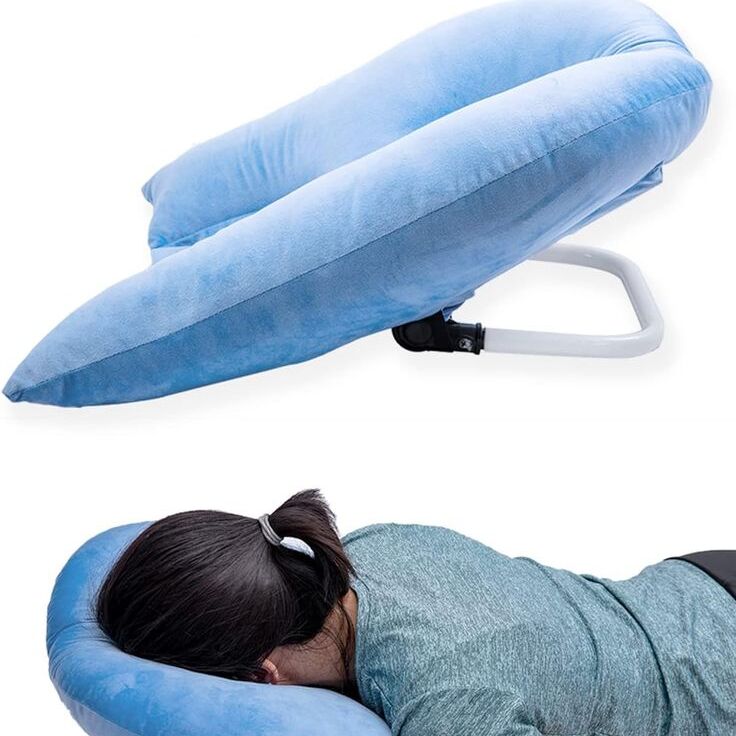
How to Care for Your Pillow
Selecting the right medical pillow is just the first step; proper care and maintenance ensure it continues to provide adequate support and hygiene. Many medical pillows come with removable covers that facilitate easier cleaning. Always check the manufacturer’s care instructions to determine the best cleaning method, as some materials are not suitable for washing machines.
For memory foam pillows, spot cleaning with mild detergent is typically recommended. Maintain hygiene by using a pillow protector, which helps guard against allergens, dust mites, and spills. Ensure that the protector is machine washable for easy upkeep. Additionally, allow the pillow to air out regularly, as this helps eliminate odors and maintains freshness.
Investing time in proper care prolongs the lifespan of your pillow while ensuring that you continue reaping its benefits. Keeping your medical pillow clean enhances your overall sleep experience and maintains the integrity of its shape and supportive qualities.
The Financial Consideration of Specialized Pillows
Cost can often play a significant role in the decision-making process when purchasing a medical pillow. While it’s essential not to compromise on quality, budget-friendly options are available for every type of medical pillow. Standard pillows can range from 20toover100, depending on the brand, material, and design.
It’s worth considering that investing in a high-quality medical pillow often pays off in the form of improved sleep and reduced pain symptoms. Prioritizing health and comfort may lead to long-term savings by reducing the need for costly medical treatments or interventions related to chronic discomfort.
Look for sales, discounts, and reviews to identify the best options within your budget. Sometimes, local healthcare providers or specialized stores can offer recommendations or even trial periods that allow you to test a pillow before making a purchase.
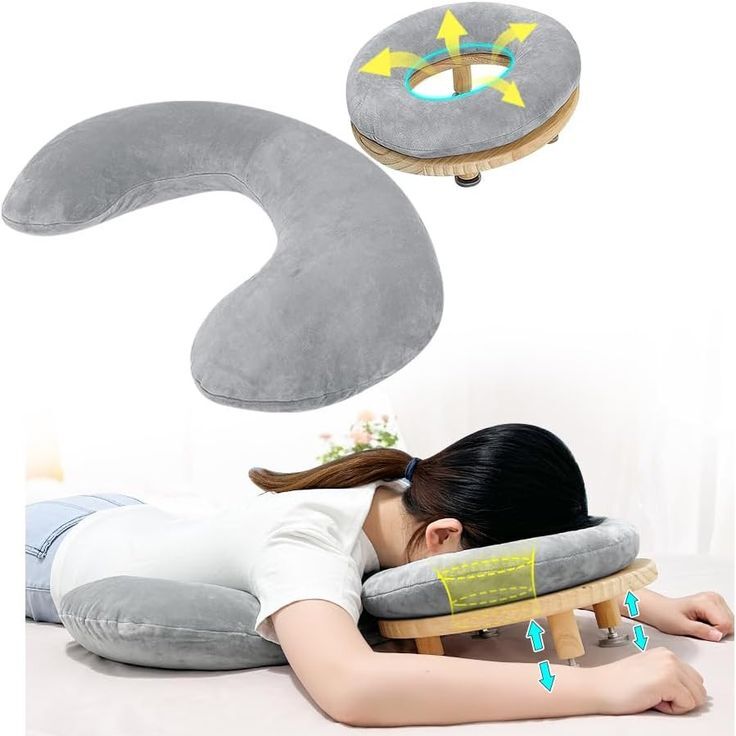
Conclusion: Prioritizing Your Sleep Health
Finding the right medical pillow requires intentional consideration of your unique health conditions and sleeping habits. Each type of medical pillow serves a specific purpose, providing support, comfort, and alignment to enhance your overall sleep experience. From wedge pillows aiding in recovery to cervical pillows alleviating neck pain, exploring the various options ensures you make an informed decision.
Prioritizing sleep health translates to better recovery outcomes, improved mental well-being, and enhanced quality of life. As you embark on the journey of selecting the right medical pillow, remember to assess your individual needs, consider expert recommendations, and maintain good care practices. Your investment in a medical pillow today can lead to significant improvements in your health and well-being for years to come.

